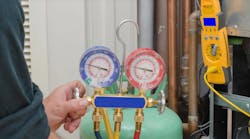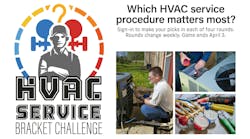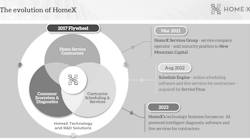The Building Performance Institute, Inc. (BPI) announced the national rollout of its advanced Home Energy Professional (HEP) certifications. The four HEP certifications--Energy Auditor, Retrofit Installer Technician, Crew Leader and Quality Control Inspector--demonstrate advanced competency through work experience prerequisites, as well as rigorous written and field exams. These are the only home performance certifications that are both supported by the U.S. Department of Energy (DOE) and accredited by the American National Standards Institute (ANSI).
157 home performance and weatherization professionals who participated in BPI's HEP pilot exam program have already earned 230 of these elite credentials. Certified individuals are listed on BPI's certified professional locator at www.bpi.org/individual_locator.aspx.
Rebecca Arnold, Building Analyst with TerraLogos Energy Group, Baltimore, MD, earned the Energy Auditor (EA) certification through the pilot.
"I do a lot of tech work on a daily basis. I want to get better at what I do, so I can deliver the best work for my customers. It's great that the [Home Energy Professional] EA certification recognizes that. It will give people in the industry a higher bar to reach for," says Arnold.
Rob Minnick, CEO and President of Minnick's, an HVAC firm that has expanded into home performance in Laurel, Maryland. Minnick recently earned the Quality Control Inspector (QCI) certification.
"In the HVAC world, you have apprentice, journeyman and masters level designations. These new HEP certifications are equivalent to the journeyman/masters in the home performance industry. If people are serious about home performance, they should get these certifications to differentiate themselves from the entry-level workers in the field," says Minnick. "Also, with so many [government and utility] rebate programs it's important to employ people with advanced certifications as part of quality assurance efforts."
Last March the DOE Weatherization Assistance Program communicated its intent to require that all work performed with program funds be inspected by a certified Quality Control Inspector beginning in Program Year 2015.
Experienced professionals are encouraged to apply to take the exams and be among the first in the nation to earn these advanced credentials. As part of the application process, all candidates must document that they have met the prerequisite criteria, including industry-specific work experience, education and training. Visit www.bpi.org/HEP to learn how to apply, and review the FAQs for even more detailed information.
While the HEP certifications provide advanced certifications options, they will not replace BPI's existing certifications in the industry. These new credentials complement and build upon BPI's existing certifications in the home performance career ladder, where increased knowledge and skills lead to advancement. They are designed to allow professionals in the home energy upgrade industry to build both a stackable and lateral career path.
For more information on applying to take the Home Energy Professional certification exams, go to www.bpi.org/HEP.
Latest from Residential HVAC
Latest from Residential HVAC
Sponsored Content
Critical Challenges Facing HVACR Contractors in 2024
April 11, 2024
WINNER ANNOUNCED IN SERVICE BRACKET CHALLENGE!
April 5, 2024
Can Technology Address the Skilled Workforce Crisis?
Jan. 30, 2024
HomeX Plans More and Better Things for 2024
Jan. 3, 2024








